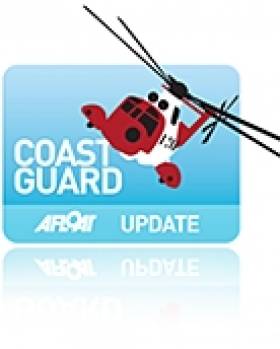Displaying items by tag: rocks
Fishermen Rescued From Sinking Vessel off Ardglass
Belfast Coastguard received a Mayday call at 5:54pm from the Newry registered vessel, which operates out of Ardglass, and immediately sent the Southdown and Portaferry Coastguard Rescue Teams to the scene. The launch was requested of the RNLI Portaferry inshore lifeboat. The Irish Coastguard Rescue Helicopter was tasked but was later stood down.
Steve Carson, Watch Manager, Belfast Maritime Rescue Coordination Centre, said:
"The crew aboard the fishing vessel were rescued by the inshore lifeboat and then taken to Ardglass Harbour where they received medical attention; one of the crew has since been taken to Downpatrick Hospital.
It is imperative to always ensure you are carrying the correct safety equipment and have it serviced regularly. Due to the prompt and appropriate action of the crew I am pleased to say they are all safe but shaken by their traumatic experience.
The rescue was successfully coordinated by Belfast Coastguard with assistance from their colleagues at Dublin, Liverpool and Holyhead Coastguard Stations.
The vessel has now been successfully refloated and is now alongside in Ardglass Harbour."
























































